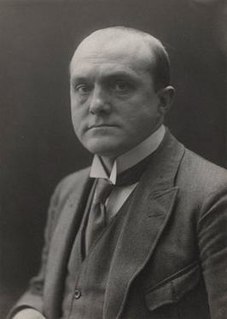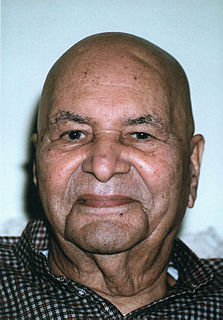A Quote by Max Beckmann
I hardly need to abstract things, for each object is unreal enough already, so unreal that I can only make it real by means of painting.
Related Quotes
People sometimes say that the way things happen in the movies is unreal, but actually, it's the way things happen to you in life that's unreal. The movies make emotions look strong and real, whereas when things really do happen to you, it's like you're watching television -- you don't feel anything.
With everything we do in life we identify ourselves. Here is a man who says harsh words to me. I feel anger coming on me. In a few seconds anger and I are one, and then comes misery. Attach yourselves to the Lord and to nothing else, because everything else is unreal. Attachment to the unreal will bring misery. There is only one Existence that is real, only one Life in which there is neither object nor [subject].
Living consciously reflects the conviction that sight is preferable to blindness; that respecting the facts of reality is more satisfying than denying them; that evasion does not make the unreal real or the real unreal; that it is better to correct your mistakes that to pretend they do not exist; and that the more conscious you are of facts bearing on your life and goals, the more wisely and effectively you can act.
The past exists only in our memories, the future only in our plans. The present is our only reality. The tree that you are aware of intellectually, because of that small time lag, is always in the past and therefore is always unreal. Any intellectually conceived object is always in the past and therefore unreal. Reality is always the moment of vision before the intellectualization takes place. There is no other reality.
In obedience to the feeling of reality, we shall insist that, in the analysis of propositions, nothing "unreal" is to be admitted. But, after all, if there is nothing unreal, how, it may be asked, could we admit anything unreal? The reply is that, in dealing with propositions, we are dealing in the first instance with symbols, and if we attribute significance to groups of symbols which have no significance, we shall fall into the error of admitting unrealities, in the only sense in which this is possible, namely, as objects described.
Did Buddha teach that the many was real and the ego unreal, while orthodox Hinduism regards the One as the real, and the many as unreal?" the Swami was asked. "Yes", answered the Swami. "And what Ramakrishna Paramahamsa and I have added to this is, that the Many and the One are the same Reality, perceived by the same mind at different times and in different attitudes.
All that you are attached to, all that you love, all that you know, someday will be gone. Knowing this, and that the world is your mind which you create, play in, and suffer from, is known as discrimination. Discriminate between the Real and the Unreal, the known is unreal and will come and go so stay with the Unknown, the Unchanging, the Truth.





































